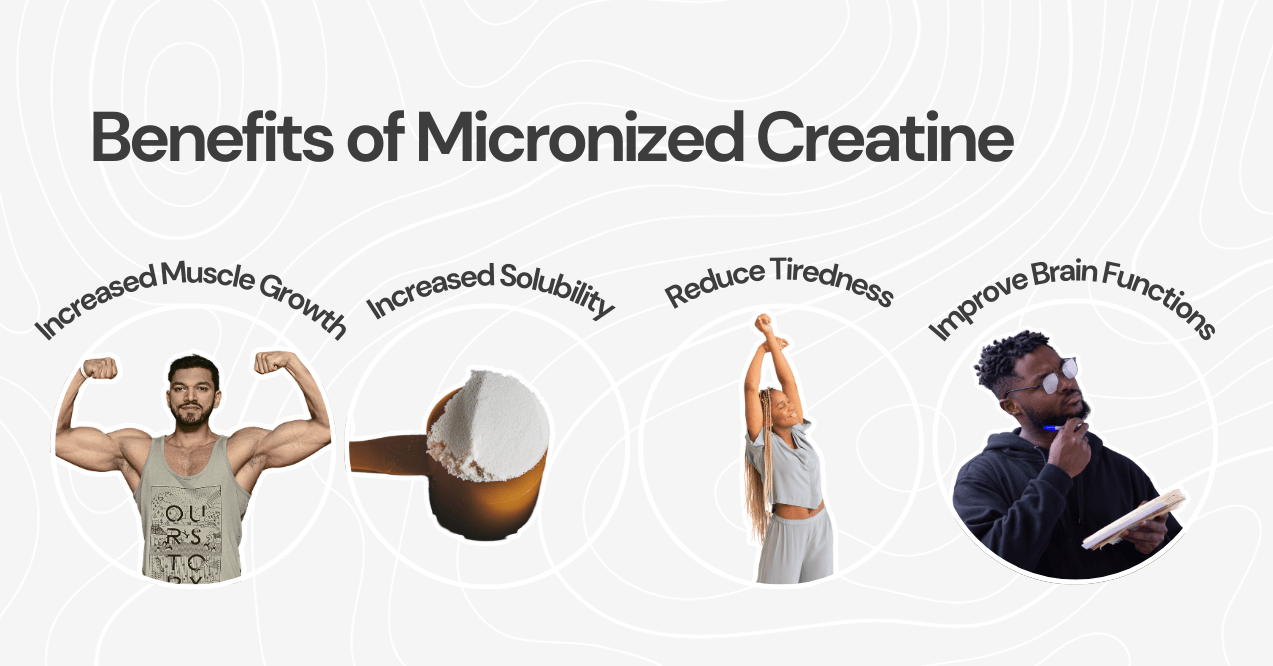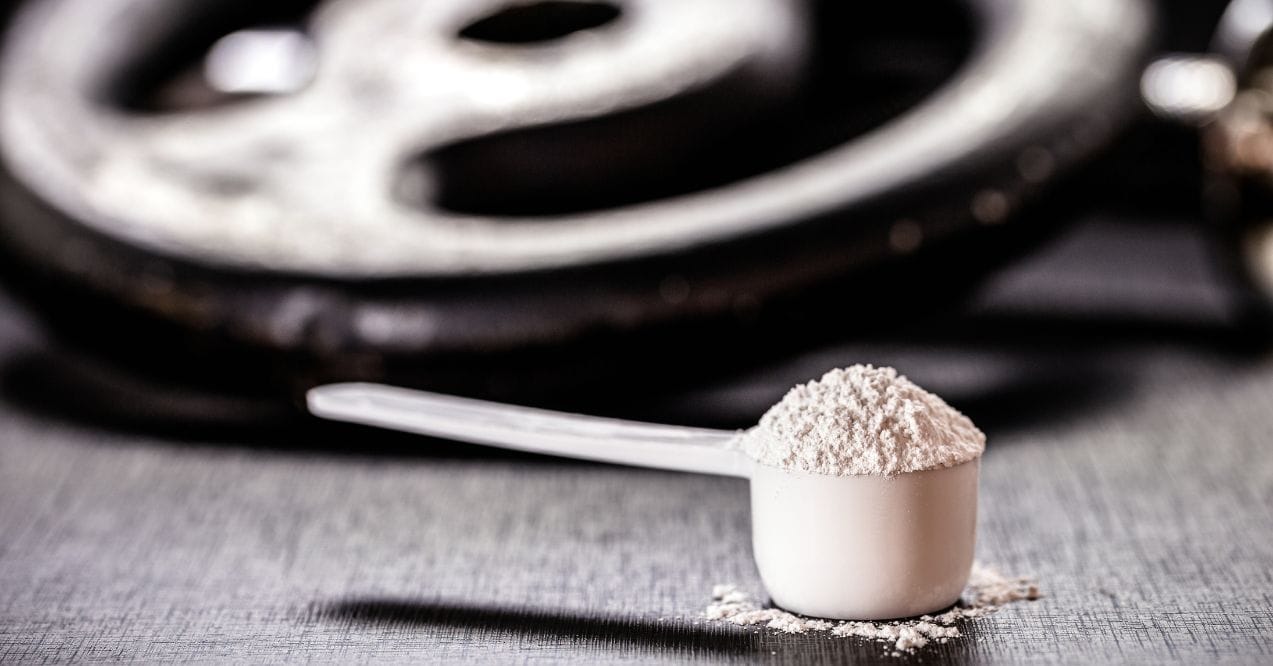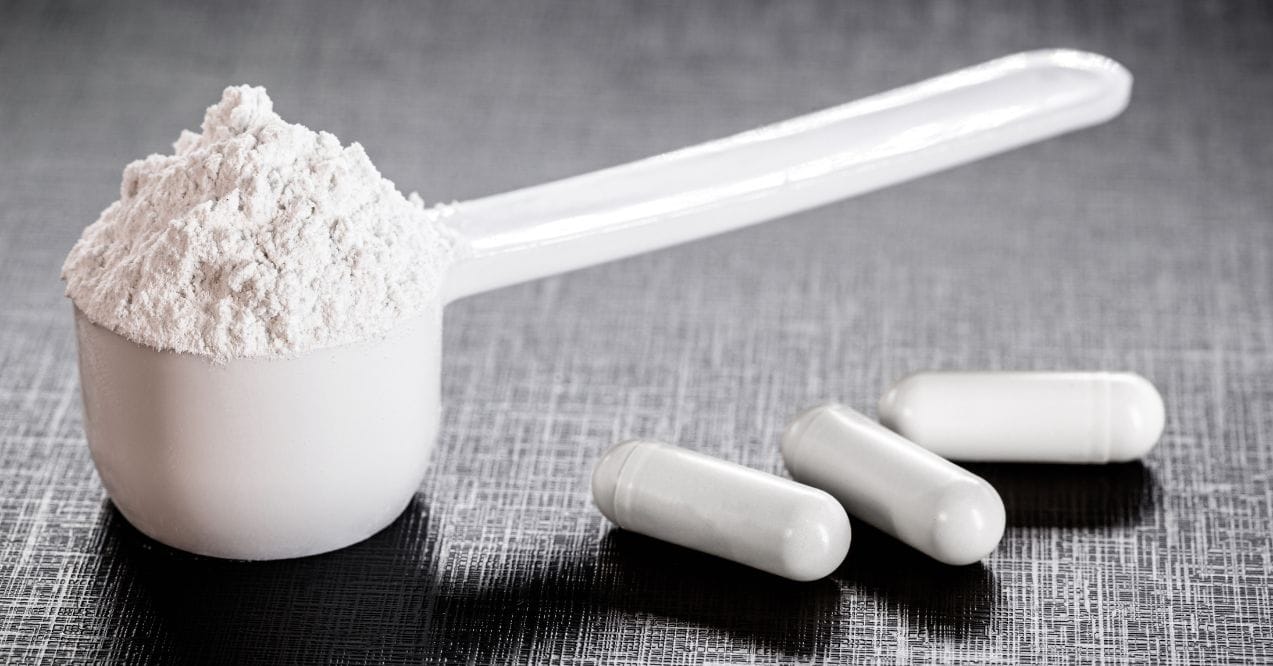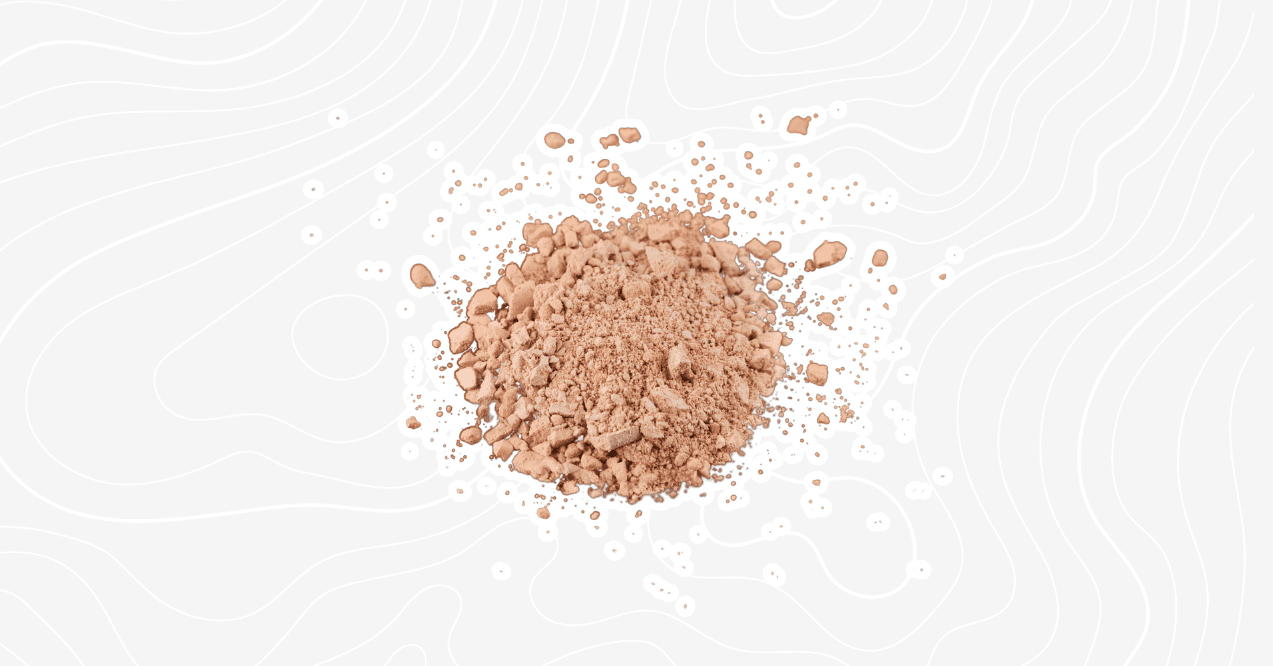What Is a Micronized Creatine? Benefits and How It Works
What is micronized creatine? As athletes and gym-goers constantly seek ways to enhance their performance, micronized creatine supplements have become known as a go-to option. This supplement promises to boost muscle growth, increase strength, and improve recovery times.
But what sets it apart from those who came before? How does its unique structure influence its effectiveness? And why are more and more fitness enthusiasts making the switch?
In this article, we’ll dive deep into the science behind micronized creatine, explore its benefits, and uncover how it might just be the key to unlocking your next level of physical performance.
Key Insights:

What Is a Micronized Creatine?
Micronized creatine is a type of creatine that’s been finely ground. The particles are tiny – up to 20 times smaller than regular creatine monohydrate. This small size makes a big difference in how it mixes with liquids.
When you add micronized creatine to your drink, it dissolves quickly. No more gritty residue at the bottom of your glass! Some athletes think these smaller particles might be absorbed better by the body. But the jury’s still out on that claim – we need more scientific evidence.
Does creatine break a fast? Creatine doesn’t have calories. However, if you’re fasting for metabolic benefits, consider taking your creatine during your eating window.
Should I Take Creatine While Trying to Lose Fat? Absolutely! Many people assume creatine is only for muscle gain, but it can actually be a valuable tool for fat loss as well. It helps maintain muscle mass while you’re in a calorie deficit, supports workout performance, and keeps your energy levels steady—making it a great addition to any weight-loss plan.
Micronized Creatine vs Monohydrate
Let’s talk about the difference between micronized creatine and creatine monohydrate.
- Mixability – Micronized creatine wins here. It dissolves more easily.
- Texture – Micronized creatine feels smoother when mixed.
- Absorption – Some say micronized creatine absorbs better, however more research needed to base that claim.
- Effectiveness – Both seem to work equally well for performance and muscle growth.
- Price – Micronized creatine often costs a bit more due to extra processing.
Is creatine monohydrate the same as creatine? Yes and no. They both contain creatine, but monohydrate isn’t processed to have smaller particles like micronized creatine.
Benefits of Micronized Creatine

Increased Muscle Growth
Micronized creatine can help you build muscle. How? It boosts ATP in your muscles. ATP fuels your muscle contractions during intense workouts. More ATP means you might squeeze out a few more reps or lift heavier weights. Over time, this can lead to more muscle growth – especially if you’re focusing on body recomposition and trying to build muscle while reducing fat.
Improve Brain Functions
Your brain likes creatine too! Some studies suggest it might boost memory and focus. This is especially interesting for vegetarians and older adults, who tend to have lower natural creatine levels.
Reduce Tiredness
Feeling wiped after your workouts? Micronized creatine might help. By boosting ATP production, it can help you push through fatigue during intense training sessions. Plus, it might speed up recovery between workouts. Train harder, recover faster – sounds good, right?
Increased Solubility
One big perk of micronized creatine is how easily it mixes. No more clumps in your shaker! This makes it much more convenient to use, especially if you’ve had trouble with regular creatine monohydrate not mixing well.
Side Effects of Using Micronized Creatine
Micronized creatine is generally safe, but there are a few things to watch out for:
- Stomach troubles – Some people might feel a bit queasy at first.
- Water weight – Your muscles might hold more water, causing a temporary weight increase.
- Thirst – As creatine pulls water into your muscles, you’ll need to drink more.
Does creatine make you bloated? Some people do puff up a bit when they start taking creatine, but it usually goes away as your body adjusts.
If you get a creatine headache, it might be dehydration. Drink plenty of water when you’re using creatine supplements.
How to Use Micronized Creatine?
Dosage and Timing
Aim for 3-5 grams of micronized creatine daily. Some people do a “loading phase” with 20 grams daily for a week, then drop to the regular dose. But you don’t have to do this.
If you’re wondering, How Much Water to Drink With Creatine – a good rule of thumb is to drink at least 8-10 glasses of water per day while supplementing with creatine. If you’re training intensely, you may need even more to stay properly hydrated and avoid potential side effects like bloating or cramping.
When should you take it? Any time works. Some athletes like taking it before or after workouts. Others mix it into their morning smoothie. Find what works for you best.
Mixing and Consumption Tips
Get the most from your micronized creatine:
- Use warm water for better mixing.
- Stir well and drink right away.
- Mix it into shakes or juice if you prefer.
- Stay consistent – take it daily for best results.
When choosing a creatine supplement, quality matters. For those seeking the purest form of creatine, Trumeta Creatine stands out. It contains 100% Creapure®, a premium creatine monohydrate produced in Germany under strict quality standards. With no fillers or additives, Trumeta Creatine offers a clean, vegan-friendly option for athletes who demand the best.

Final Thoughts
In conclusion, micronized creatine offers a practical way to get all the good stuff from creatine supplementation. It mixes better than regular creatine and might be absorbed more easily by your body.
What does this mean for you? You’ll likely find it easier to use daily, which helps with muscle growth, brain function, and athletic performance. Plus, you won’t have to deal with that gritty texture in your shake.
Just remember the basics: drink plenty of water and pay attention to how your body responds. When used properly, micronized creatine can help you level up your fitness game – whether you’re hitting the gym hard or just want to feel stronger in your daily life.
Creatine monohydrate is a specific form of creatine. While all creatine supplements contain the creatine molecule, creatine monohydrate is the most common and well-researched form. It consists of a creatine molecule bound with a water molecule. Other forms exist, but creatine monohydrate is often considered the gold standard
Micronized creatine can start working quickly, but noticeable results typically take time. Some users report feeling effects within a week, especially if using a loading phase. However, for most people, it takes about 2-4 weeks of consistent use to experience significant benefits in muscle strength and performance.
Micronized creatine is generally considered safe and beneficial for most healthy adults. It can improve athletic performance, increase muscle mass, and may even have cognitive benefits. However, as with any supplement, it’s important to use it as directed and consult with a healthcare professional, especially if you have pre-existing health conditions.
References
Advertisement. This site offers health, wellness, fitness and nutritional information and is designed for educational purposes only. You should not rely on this information as a substitute for, nor does it replace, professional medical advice, diagnosis, or treatment. If you have any concerns or questions about your health, you should always consult with a physician or other health-care professional. Do not disregard, avoid or delay obtaining medical or health related advice from your health-care professional because of something you may have read on this site. The use of any information provided on this site is solely at your own risk.







